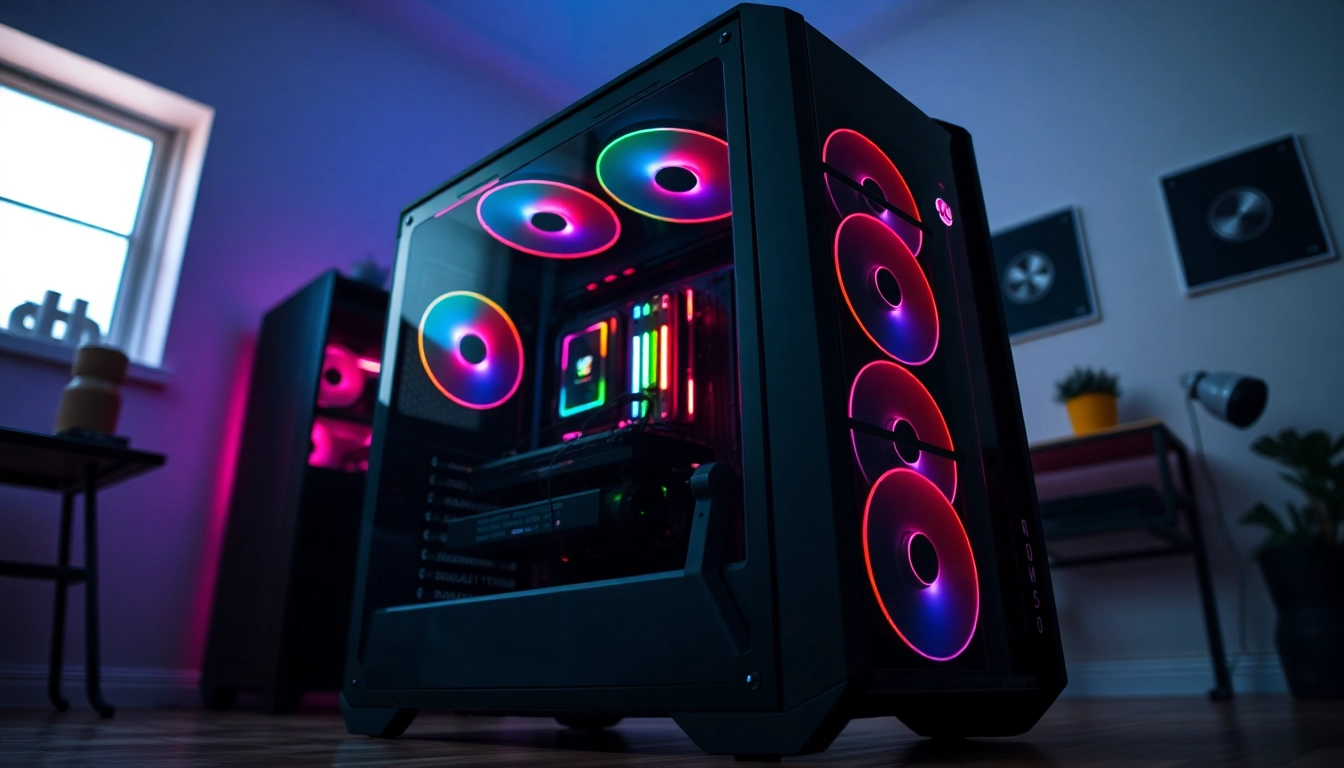Understanding PC Cases: A Guide for Builders
In the realm of computer building, the choice of a PC CASE Supplier plays a pivotal role in the overall performance and aesthetic of your machine. A PC case influences not only the airflow and cooling capabilities but also the visual appeal of your setup. In this guide, we will explore what a PC case is, the types available, and how to choose the right one for your build.
1. What is a PC Case?
A PC case, also known as a computer chassis or enclosure, is a physical structure that houses the vital components of a personal computer. This includes the motherboard, CPU, RAM, hard drives, and graphics cards. The case serves to protect these components from dust, physical damage, and electromagnetic interference, while also providing necessary cooling and airflow.
2. Types of PC Cases Available
PC cases are diverse, and selecting the right type can depend on several factors such as your specific build requirements, design preferences, and intended use. Here are the most common types of PC cases:
- Full Tower Cases: Offering ample space for a large number of components, these cases are ideal for enthusiasts who wish to build elaborate gaming or workstation setups.
- Mid Tower Cases: A popular choice for general users, these cases provide a balance of space and form factor, accommodating most standard components.
- Mini Tower Cases: Best for compact builds, these cases fit into smaller spaces but may limit upgrade options due to their restricted interior volume.
- SFF (Small Form Factor) Cases: Designed for maximum portability and aesthetic appeal, SFF cases are ideal for builds that prioritize size and style.
- Open-Frame Cases: These cases offer visibility of internal components and improved airflow but may expose your components to dust and other hazards.
3. Choosing the Right Case for Your Build
When selecting a PC case, it’s essential to consider several factors:
- Compatibility: Ensure that the case can accommodate your motherboard size (ATX, Micro-ATX, Mini-ITX), GPUs, and cooling solutions.
- Cooling Potential: Look for cases with effective airflow designs and fan mounting options. Better cooling helps maintain optimal performance during intense use.
- Expandability: Consider your future-proofing needs. A case that allows for additional drives, upgraded GPUs, or cooling solutions will save you from needing a replacement in the near future.
- Design: The visual aesthetics of your case can enhance your overall workspace. Choose a design that resonates with your style, whether it’s minimalist or RGB-lit.
Key Features to Look for in a PC CASE Supplier
As you navigate the marketplace for a PC case supplier, it’s critical to identify key features that differentiate quality suppliers from the rest. These features can significantly impact your purchase and user experience.
1. Quality Materials and Build
The construction quality of a case affects its durability, heat dissipation, and overall aesthetic. Look for cases made of high-grade steel, aluminum, or tempered glass. Suppliers who prioritize quality materials will provide cases that are robust and stylish, promising longevity for your components.
2. Cooling Options and Airflow Management
Effective cooling is crucial for maintaining peak performance during heavy tasks. Your supplier should offer cases with support for multiple fans and liquid cooling systems. Cases with mesh front panels can enhance airflow, while those with predefined water cooling mounts simplify the setup process.
3. Aesthetic Appeal and Customization
A PC case is often the centerpiece of a build, and its visual appeal can either make or break your entire setup. Look for suppliers that provide customizable options such as RGB lighting, tempered glass panels, and various finishes. This flexibility allows you to create a PC that reflects your personal style.
Top Brands to Consider from Your PC CASE Supplier
When selecting a PC case, partnering with recognized brands ensures quality and reliability. Here are top brands to consider when sourcing your PC case:
1. Leading Options: Corsair and Lian Li
Corsair is synonymous with high-quality gaming hardware. Their cases are designed for optimal airflow and user-friendly assembly, making them a favorite among gamers. Meanwhile, Lian Li is celebrated for its sleek and elegant aluminum cases that not only perform well but also offer a stunning visual appeal, particularly with tempered glass side panels.
2. Innovative Designs: Thermaltake and Zalman
Thermaltake stays ahead of the curve by offering a range of innovative cases that support advanced cooling solutions and unique designs. Their products often cater to gamers looking for expanded customization options. Zalman, on the other hand, is known for their silent operation and effective thermal management, appealing to users who prioritize quiet systems without sacrificing performance.
3. Unique Choices: Niche Brands and Custom Cases
For those seeking something out of the ordinary, niche brands can provide unique offerings, including customizable cases tailored for specific uses or artistic expressions. Suppliers that focus on made-to-order cases allow enthusiasts to design their enclosures based on personal specifications, ensuring no two builds are alike.
Comparing Prices: Finding Value from Your PC CASE Supplier
Understanding the market dynamics of PC case pricing is crucial for informed buying decisions. The cost of a PC case can vary significantly based on features, materials, and brand reputation.
1. Budget-Friendly vs. High-End Cases
Budget-friendly cases may provide basic functionality but often lack advanced features such as effective cooling, structural integrity, and aesthetic appeal. High-end cases, while more expensive, often offer superior materials, better airflow, and enhanced aesthetics, potentially justifying the investment for serious builders.
2. Evaluating Cost vs. Features
When comparing cases, assess how the price aligns with the features offered. Sometimes a mid-range case may provide more value than a high-end option, especially if it includes essential components like fan mounts or cable management systems.
3. Seasonal Sales and Offers
Stay alert during specific promotional periods such as Black Friday or back-to-school sales. Educational discounts or promotional codes from suppliers can result in significant savings. Additionally, consider subscribing to newsletters from top brands and suppliers to stay informed about upcoming sales.
Best Practices for Building Your PC with Cases
Building your PC can be a rewarding experience, but it requires careful planning and execution. Here are some best practices to ensure a smooth assembly process.
1. Step-by-Step Assembly Process
Follow a structured approach to assembling your PC. Begin by laying out all components within easy reach, and consult build guides or videos to familiarize yourself with the process. Install the power supply and motherboard first, followed by other components like RAM and storage. Finally, carefully route cables to ensure good airflow and organization.
2. Common Mistakes to Avoid
Don’t rush the assembly process. Common mistakes include failing to ground yourself, which can lead to static damage, and neglecting to properly secure hardware. Double-check compatibility between components before final installation to avoid issues.
3. Tips for Maintenance and Upgrades
Maintenance is critical for longevity. Regularly clean your case from dust buildup, check cable connections, and monitor temperatures to ensure optimal performance. Consider planning for upgrades early by selecting a case that allows for extra space and future enhancements.



